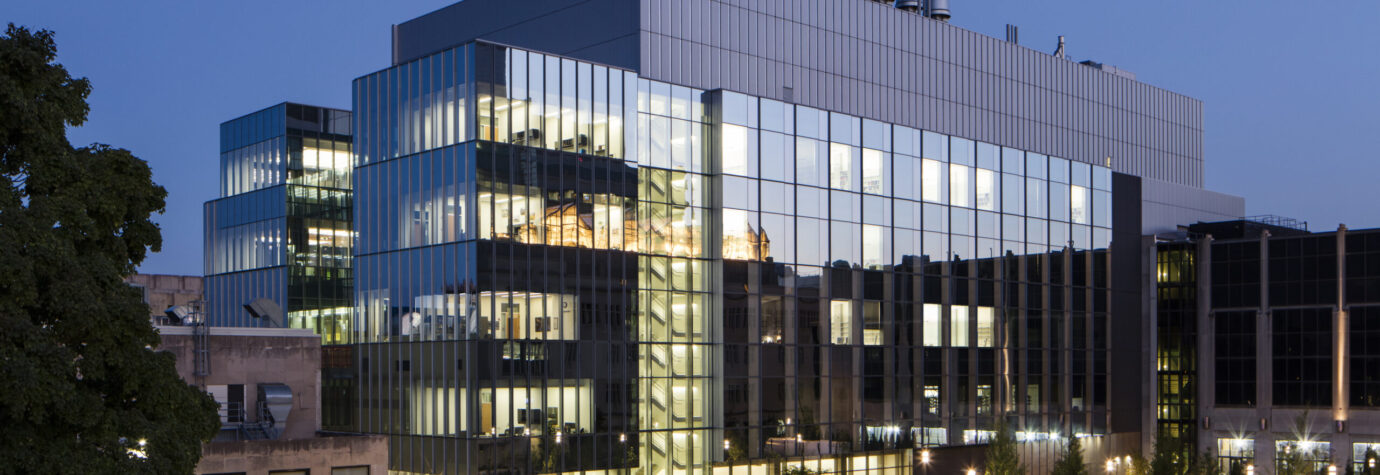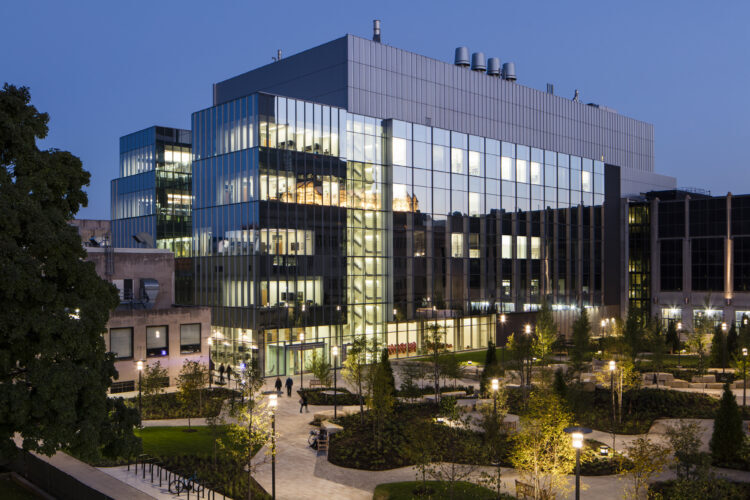The Eric and Wendy Schmidt AI in Science Postdoctoral Fellowship
The Eric and Wendy Schmidt AI in Science Postdoctoral Fellowship, a program of Schmidt Futures, at the University of Chicago trains scholars who seek to advance and accelerate the adoption of artificial intelligence (AI) in the natural sciences. The rise of AI in science and engineering presents both a remarkable opportunity and a profound challenge to human-centered modes of inquiry, including not only data analysis, but also the design of experiments, the formulation of new hypotheses, and the revelation of natural laws. Given the cross-disciplinary nature of AI research in science, Fellows will be offered freedom and independence in pursuing their disciplinary research integrating AI methods, including the flexibility to change or expand their research focus and to work with multiple research groups while at the University.
This unique program is part of an engaged, cross-disciplinary AI and science community that includes departments across the UChicago campus as well as Argonne National Laboratory, Fermi National Accelerator Laboratory, and the Marine Biological Laboratory.
Fellows will have the opportunity to pursue original research on significant questions in AI and science. They will form a cohort of top scholars across the natural sciences engaging in joint training and research activities. Fellows will receive the training in AI methods necessary for conducting their research. Drawing on the University’s top-ranked programs, world-renowned faculty, and vibrant data science ecosystem, this program will allow postdoctoral fellows to engage in field-defining research. Fellows will receive a competitive salary and benefits, generous research funding and travel allowances, and the opportunity to collaborate with partners worldwide.
Read more about the fellowship at UChicago News.
Leadership
-
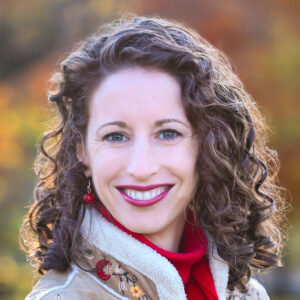
Rebecca Willett
Faculty Director of AI, Data Science Institute; Professor, Statistics, Computer Science, and the College -
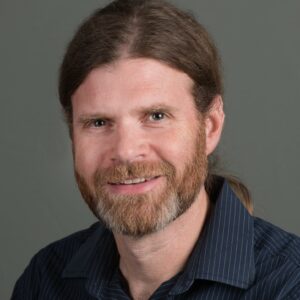
David Freedman
Professor of Neurobiology, Committees on Computational Neuroscience and Neurobiology -
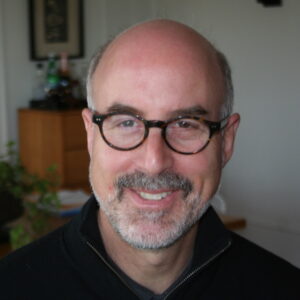
Joshua Frieman
Professor and Chair of Astronomy and Astrophysics; Kavli Institute of Cosmological Physics
Rebecca Willett is a Professor of Statistics and Computer Science at the University of Chicago. She completed her PhD in Electrical and Computer Engineering at Rice University in 2005 and was an Assistant then tenured Associate Professor of Electrical and Computer Engineering at Duke University from 2005 to 2013. She was an Associate Professor of Electrical and Computer Engineering, Harvey D. Spangler Faculty Scholar, and Fellow of the Wisconsin Institutes for Discovery at the University of Wisconsin-Madison from 2013 to 2018. Prof. Willett received the National Science Foundation CAREER Award in 2007, was a member of the DARPA Computer Science Study Group 2007-2011, and received an Air Force Office of Scientific Research Young Investigator Program award in 2010. Prof. Willett has also held visiting researcher positions at the Institute for Pure and Applied Mathematics at UCLA in 2004, the University of Wisconsin-Madison 2003-2005, the French National Institute for Research in Computer Science and Control (INRIA) in 2003, and the Applied Science Research and Development Laboratory at GE Medical Systems (now GE Healthcare) in 2002. Her research interests include network and imaging science with applications in medical imaging, wireless sensor networks, astronomy, and social networks. She is also an instructor for FEMMES (Females Excelling More in Math Engineering and Science; news article here) and a local exhibit leader for Sally Ride Festivals. She was a recipient of the National Science Foundation Graduate Research Fellowship, the Rice University Presidential Scholarship, the Society of Women Engineers Caterpillar Scholarship, and the Angier B. Duke Memorial Scholarship.
David Freedman is a Professor in the Department of Neurobiology and the Neuroscience Institute at the University of Chicago. He has a broad background in cognitive, systems, and computational neuroscience, with expertise in electrophysiological approaches for recording neuronal population activity in awake non-human primates trained to perform complex behavioral tasks which require learning, memory, and decision-making. His research program also has a major focus on artificial intelligence (AI) approaches for studying neuroscience-related questions in artificial neural networks, and on designing novel biologically-inspired AI approaches. His research, supported by NIH, NSF, DOD, and private foundations, investigates the neuronal computations of higher-order perceptual and cognitive functions. Following graduate and postdoctoral training at MIT and Harvard Medical School, he established his laboratory at the University of Chicago in 2008, from which he has trained numerous graduate students and postdoctoral scholars that have successfully established their own independent research careers. His work has been recognized by the Troland Research Award from the National Academy of Sciences, the Vannevar Bush Faculty Fellowship from the Department of Defense, the NSF Career Award, and Faculty Fellowship Awards from the Sloan, McKnight, and Brain Research Foundations. In 2018, he received the University of Chicago Faculty Award for Excellence in Graduate Teaching and Mentoring.
Joshua Frieman is a Professor and Chair of the Department of Astronomy & Astrophysics at the University of Chicago, where he is a Senior Member of the Kavli Institute for Cosmological Physics. He is also a Distinguished Scientist and former Head of the Particle Physics Division at Fermilab. Frieman’s research spans theoretical and observational cosmology, including studies of the early universe, large-scale structure, gravitational lensing, supernovae, dark matter and dark energy. His research has increasingly relied on the use of machine learning techniques in the analysis of cosmic surveys, e.g., in estimating photometric redshifts, in automated artifact filtering of astronomical time-domain images, and in the discovery and modeling of strong gravitational lens systems. The co-author of over 600 publications, he was a co-founder and later Director of the Dark Energy Survey (DES), an international collaboration of 500 scientists from 25 institutions in 7 countries that carried out a six-year survey to map the Universe using a 570-megapixel camera it built for a 4-meter telescope in Chile. DES has cataloged several hundred million galaxies and discovered several thousand supernovae, yielding state-of-the-art measurements of cosmological parameters. Frieman previously played leadership roles in the Sloan Digital Sky Survey (SDSS) and led the SDSS-II Supernova Survey. Over 30 years, he has mentored over 40 postdocs and 20 graduate students at UChicago and Fermilab. He is active in outreach through public lectures (his “Probing the Dark Universe” has 7.5 million views on YouTube), K-12 school presentations, podcast interviews, and venues such as the World Science Festival. He is actively engaged in improving diversity and inclusion in STEM institutions.
Staff
Eric and Wendy Schmidt AI in Science Postdoctoral Fellowship Administrator at the University of Chicago, responsible for leading the program and supporting selected postdoctoral scholars in using AI methods to improve their research activities. Works closely with faculty leadership, manages budget and project schedules, and develops partnerships across divisions and national laboratories.
Prior to this role, served as Associate Director of the Office of Academic Affairs at the University of Chicago for over eight years, providing support and expertise to 23 basic science departments in recruitment and faculty appointments. Managed systems and processes related to academic recruiting, collaborated with various university offices, and contributed to strategic planning.
Previously, worked as the Director of Training and Contact Center at Planned Parenthood of Illinois, overseeing the contact center operations and developing operational and clinical training programs. Managed projects to improve patient services and enrollment processes, supervised trainers, and implemented process improvements to increase efficiency.
Also held roles as Contact Center Manager at PPIL, Manager of the Contact Center at SXC Health Solutions, and Project Coordinator/BA at Mayo Clinic/Frontage Technologies, where responsibilities included training, system support, and project coordination.
Background includes experience as a Behavior Counselor Supervisor/Trainer/Account Manager/Project Manager and Behavior Analyst at Laura Baker Services Association.
Overall, Simona has a diverse background in academic administration, contact center management, and training, with a focus on supporting research, faculty appointments, and improving operational efficiency.
